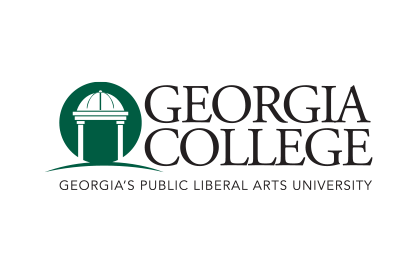Project Title
Learning to Teach Reading Effectively—Community Based Course Supports Early Learners
Faculty Mentor(s) Name(s)
Linda Golson Bradley
Abstract
The stakes for new teachers to teach reading well have never been higher. Policymakers express grave concern over the large percentage (36% - GADOE Georgia Milestones, 2022) of students who are not reading on grade level by the end of third grade. As a result, literacy courses for Early Childhood Education majors at Georgia College have changed over the past five years to include community based experiences that directly involve students in teaching reading to young children. We have completed two semesters of community-school based tutoring as part of EDRD 3511: Literacy Assessment and Instruction: Dyslexia and Diverse Reading Profiles. This course meets on campus and at Lakeview Primary School. Candidates work with 1st or 2nd grade students in an intervention tutoring context for 5-6 sessions, plus pre/post assessment sessions. Faculty members are on site for coaching and support. Course instruction is provided before and after tutoring interventions. On the spot feedback and discussion of connections between assessment and intervention are key to the learning progress of 1st-2nd grade students and teacher candidates. Teacher candidates describe the key impact of this instructional model upon their own preparation and effectiveness in teaching. Teacher candidates must implement theoretical insights to support the learning progress of a young reader. All members of the current course will collaborate for this poster presentation to highlight instructional techniques and student progress. We work collaboratively to develop key skills in flexibility, data analysis, multi-sensory instructional methods, and communicating with school administrators as well as community partners.
Learning to Teach Reading Effectively—Community Based Course Supports Early Learners
The stakes for new teachers to teach reading well have never been higher. Policymakers express grave concern over the large percentage (36% - GADOE Georgia Milestones, 2022) of students who are not reading on grade level by the end of third grade. As a result, literacy courses for Early Childhood Education majors at Georgia College have changed over the past five years to include community based experiences that directly involve students in teaching reading to young children. We have completed two semesters of community-school based tutoring as part of EDRD 3511: Literacy Assessment and Instruction: Dyslexia and Diverse Reading Profiles. This course meets on campus and at Lakeview Primary School. Candidates work with 1st or 2nd grade students in an intervention tutoring context for 5-6 sessions, plus pre/post assessment sessions. Faculty members are on site for coaching and support. Course instruction is provided before and after tutoring interventions. On the spot feedback and discussion of connections between assessment and intervention are key to the learning progress of 1st-2nd grade students and teacher candidates. Teacher candidates describe the key impact of this instructional model upon their own preparation and effectiveness in teaching. Teacher candidates must implement theoretical insights to support the learning progress of a young reader. All members of the current course will collaborate for this poster presentation to highlight instructional techniques and student progress. We work collaboratively to develop key skills in flexibility, data analysis, multi-sensory instructional methods, and communicating with school administrators as well as community partners.

